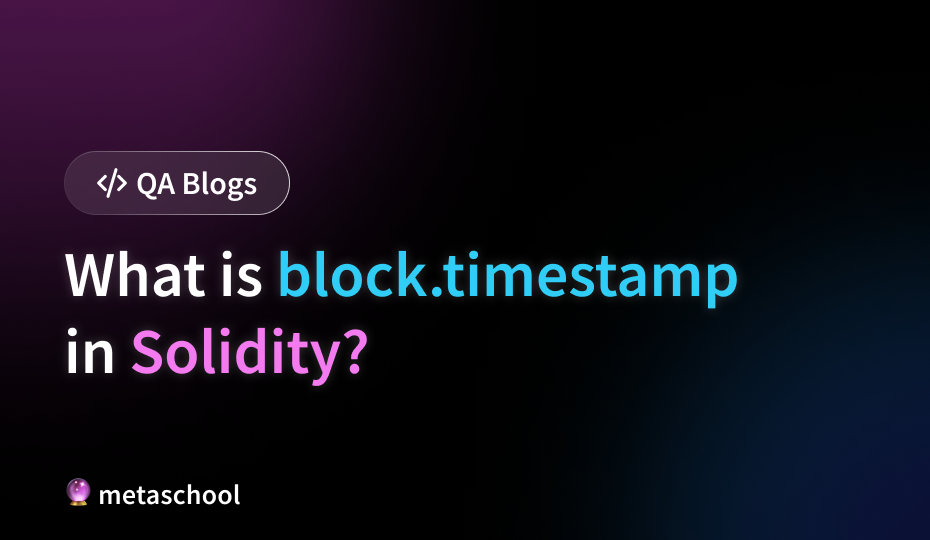Table of Contents
Solidity, the programming language for Ethereum smart contracts, offers developers a range of tools to interact with the blockchain. Among these, block.timestamp is a crucial global variable that provides the current timestamp of the block being mined.
What is block.timestamp?
- Definition:
block.timestampis a global variable representing the current timestamp of the block being mined. - Format: The timestamp is measured in seconds since the Unix epoch (January 1, 1970).
- Data Type: It is of the
uint256data type.
🔥 Check this out: Build in Public
Why is it Important?
- Time-Related Functionality: Developers frequently use
block.timestampto introduce time-related functionality or constraints in their smart contracts. - Examples of Usage: It is commonly employed for implementing time-based access controls, managing token vesting schedules, or creating time-dependent game mechanics.
Example Contract Using block.timestamp
// SPDX-License-Identifier: MIT
pragma solidity ^0.8.0;
contract TimestampExample {
// Store the timestamp when the contract is deployed
uint256 public deploymentTimestamp;
constructor() {
// Record the deployment timestamp
deploymentTimestamp = block.timestamp;
}
// Function to check if a certain amount of time has passed since deployment
function hasTimePassed(uint256 secondsPassed) public view returns (bool) {
// Calculate the current timestamp
uint256 currentTimestamp = block.timestamp;
// Check if the specified time has passed
return currentTimestamp >= deploymentTimestamp + secondsPassed;
}
}
Code Explanation
- Deployment Timestamp: The contract records the timestamp when it is deployed using the
block.timestampin theconstructor. - hasTimePassed Function: This function checks if a certain amount of time has passed since deployment. It calculates the current timestamp and compares it with the deployment timestamp plus the specified time.
Considerations and Security Implications for block.timestamp
- Miner Manipulation:
block.timestampis subject to manipulation by miners to some extent. - Variance: It has inherent variance, so relying solely on it may have security implications.
- Enhanced Security: To enhance security, consider using an external time oracle for critical applications.
🔥 Check this course out: Build on Move on Sui and Explore its Applications
Conclusion
In conclusion, block.timestamp is a valuable tool in Solidity for introducing time-related functionality in smart contracts. Developers can leverage this global variable to build dynamic and versatile decentralized applications on the Ethereum blockchain. However, it is essential to be mindful of its limitations and consider additional security measures for critical use cases.
Tried this out? Let us know how it went by taking a screenshot and tagging Metaschool on your Social Media!
Follow us on –
🔮 Twitter – https://twitter.com/0xmetaschool
🔗 LinkedIn – https://www.linkedin.com/company/0xmetaschool/
